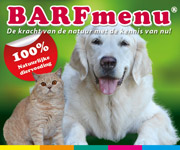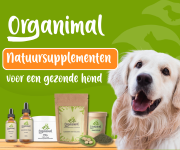- za 22 nov 2014, 09:12
#3025582
Ik pluk dit van Internet af:
Cats must be fed a relatively high protein diet. They are fed a balanced diet providing 65 to 90 Kcal/kg body weight per day. Protein amounts should provide 12 percent to 20 percent of caloric needs, which is roughly twice that needed by dogs. There is little information on feeding cats with hepatic insufficiency. They are probably similar to other mammals in that feeding meat-protein diets worsens clinical signs and progression of hepatic pathology. However, it is difficult to find cats that accept meat-free diets, especially when they are anorectic due to hepatic disease. Diets containing milk or soybean protein offer little advantage because of their amino acid composition.
Although non-meat diets may be beneficial in containing only small amounts of sulfur-containing amino acids which can produce toxins, they are deficient in taurine, whose chronic lack can result in ocular and cardiac problems. Milk has little taurine, and vegetable proteins have essentially none, so a diet based on these proteins must be supplemented with 50 mg taurine per day for an adult cat. That can be provided by supplementing the diet with clams, which have taurine amounts that are up to seven times greater than for fish, beef or chicken. Protein-restricted diets can be owner-prepared and are also commercially available, such as the prescription diet Feline k/d.
Because most hepatic pathology is secondary to primary disease in nonhepatic tissue, dietary management is supportive or directed at the primary problem. In either case cats are fed 80 to 100 Kcal/kg body weight per day, and 12 percent to 20 percent of their caloric needs must be provided by protein. The diet must also contain adequate amounts of arginine and taurine.
Anorectic cats should be managed by feeding enteral diets via nasogastric or gastrostomy tube. Liquid enteral diet can be given slowly which minimizes the possibility of vomiting or diarrhea often seen with enteral diets. Tube feeding eliminates a need for benzodiazepines or anabolic steroids to stimulate appetite. These drugs, like many, have side effects that are unwanted with hepatic disease. The enteral diets are ideal because they are meat?free, being formulated from milk and soy bean proteins. Most diets are high in fat, approximating 30 percent or more. There may be theoretical reasons for a high fat diet contributing to hepatic encephalopathy, but that is not seen. If most of dietary calories are provided by carbohydrates, large volumes of enteral diets would be required. Enteral diets based on milk and soy bean proteins require taurine supplementation; 150 mg is added to 8 oz of diet. Supplementation with branched?chain amino acids is of no benefit.
Owner-prepared diets can be used for cats with hepatic disease. Such diets are similar to ones prepared for dogs, but they need more protein and taurine. No commercial diets are produced for cats with hepatic disease. The prescription diet k/d is recommended for that use because of its protein quality and content. There are no studies showing any benefits for that diet in cats with hepatic disease, however. In general, many species of animals with hepatic insufficiency do poorer and pathology worsens when they are fed commercially prepared animal foods. Feeding such a diet is probably unimportant in most cats with hepatic pathology, but any commercial diet is likely to be less effective than an enteral diet in cats with serious hepatic disease.
Diets for cats should be supplemented with B vitamins, especially thiamine because cats become deficient quite soon during anorexia. Recommendations for supplementation with fat?soluble vitamins is the same as for dogs. No recommendations can be given for supplementation with ascorbic acid and zinc because nothing is known on requirements for cats with hepatic disease.
En dit:
Should my cat eat a special diet?
Your vet will let you know what, if anything, should be added to, removed from or restricted in your cat's diet. If your vet is not familiar with home-prepared diets, they will probably try to persuade you from attempting to make your own food. If you're also unfamiliar with creating a home-prepared meal, this isn't the best time to learn. Consult with a holistic vet for the best ways to meet your cat's specific dietary needs. Hill's Science Diet has made recipes for their prescription foods available to vets. If your cat was sent home with a Hill's Prescription Diet, you may be able to find a recipe for a homemade version of that food here.
Pitcairn recommends "small, frequent, easily digested meals" during your cat's recovery (287). Puotinen notes that animals with liver problems should be fed organically grown foods as any "chemical residue will stress the liver" (392). At the least, consider switching to a premium commercial food which has no artificial colors, preservatives, or flavors, as these must be processed by an already compromised liver (Frazier 376). Many holistic veterinary practitioners recommend adding digestive enzymes to all meals.
Some also feel that feeding raw (preferably organic) liver is an excellent way to support your cat's liver. Low-fat, preservative - and chemical - free diets are also recommended. If you use milk products, yogurt and kefir are fine, but it's best to stay away from other dairy foods. Avoid tap water, replacing it with bottled or filtered water. If you use Dr. Pitcairn's Cat Powder and Oil, discontinue the oil (except Vit E) until the cat has recovered, then reintroduce it gradually. Anitra Frazier also modifies her Vita-Mineral Mix for cats with liver disease.
Stressed repeatedly in all the sources we consulted was the fact that the food you feed is paramount to recovery. Low fat (some suggest slightly lowering protein levels, too), organic, fresh, high-quality foods will put the least stress on the liver and allow your cat to recover.
=============
Ik weet echt minder dan niks van katten maar als ik bovenstaande zo lees, kun je een kat niet vergiftigen met koolhydraten (granen/plantaardige voeding) en is zuivel ter vervanging ook geen oplossing. Dus wat ze hier voorschrijven is een dieet met een gereduceerd vet gehalte. Mager vlees dus. En, wat dan heel belangrijk is: vlees van biologische oorsprong, om de lever niet te belasten. Als je zuivel wilt voeren: yoghurt en kefir, verder niet. Wat goed is om te voeren: biologische lever.
En verder denk ik dat je best Mariadistel aan je kat kunt geven om de lever te ondersteunen.







